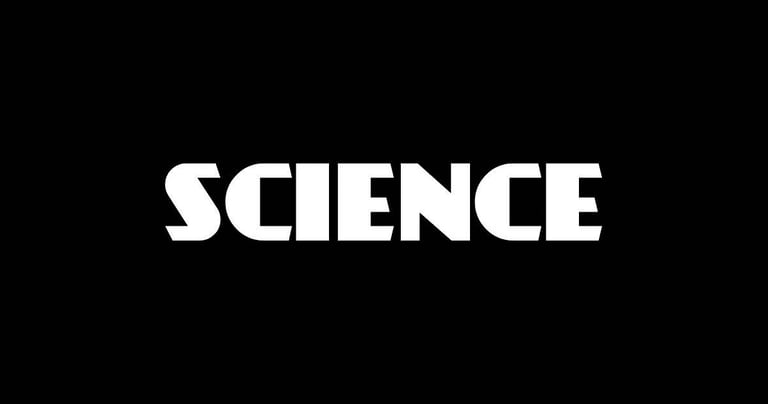11 Facts About Science
Explore 11 amazing Science facts that will truly amaze you...weird, entertaining, and really interesting details you were not taught in school.
FACTS ABOUT


Science (credit: apsce)
Sometimes Science feels a little restrictive. It is frequently trapped in technical terms, equations, and theoretical abstractions. Underneath the mathematics and microscopes, however, Science is anything but uninteresting. It is chaotic, doubtful, dynamic, and packed with uncertainties. You overlooked the true wonder of Science if you were raised believing it was limited to learning Newton's laws and the elements of the periodic table. The following 11 scientific facts will challenge your beliefs and may even make you to reconsider the true nature of understanding. Some are strange, some useful, and some simply entertaining, however, they all demonstrate how much more adaptable and inquisitive Science is than is often acknowledged. If you have ever questioned why scientists usually appear totally sure but cannot claim to "understand" certainly, you are going to discover the answer. Without a lab coat, we are going to examine the unusual, doubtful, and self-rectifying aspects of Science.
Science Predicts Without Certainty: Science cannot function with unchanging terms, despite how it may appear in textbooks or documentaries. Each scientific theory is an educated assumption founded on the available data. Future projections are constantly inclined to shifting, whether they be about the weather for tomorrow or the orbit of a comet. Therefore, a scientist has to be truthful, not evasive, when they say an aspect is probable.
Science Corrects Itself: Do you believe that Pluto's expulsion from the planet family was an accidental choice? That was self-correction in Science. Even the most outdated theories are updated as fresh information and improved instruments evolve into readily available. Science depends on becoming correct; unlike religion, it has nothing to fear it. Science is similar to changing the operating system on your smartphone. Performance improvements, bug patches, and the rare challenging new features.
Science Thrives on Doubt: The fact that Science rejects blind faith is just one of its most outstanding characteristics. Uncertainty is to be anticipated, not simply permitted. "What if we are not right?" is a question that scientists are taught to consider. Science is trustworthy because it is always asking questions. Systematic beliefs that oppose transformation are the reverse of this.
Science is Limited to The Observable: All things that cannot be seen or quantified cannot be studied by Science. That is a limitation, not a vulnerability. Its toolkit does not include metaphysical concepts such as the existence of a soul or what transpires following death. It is not Science if it is unable to tested.
Science is a Method, Not a Belief: You are not asked to put your belief in facts by Science. It challenges, observes, and tests concepts. Developing speculations, gathering information, and testing your theory are all steps in the scientific approach. That is all. Belief is not necessary. You can respond, "That is similar to stating you have no belief in recipes," to an individual who states, "I do not believe in Science."
Science Does Not "Prove" Instead, it Supports: "Proof" is a mathematical concept. In Science, a theory is supported by adequate proof rather than being proven. However, that support is never absolute. Science adapts if fresh information challenges the existing concept. No holy cows.
Science Builds on Falsifiability: Although it seems fancy, falsifiability is essential to Science. A theory needs to be ready for challenge in an approach that might show it is incorrect. A theory is not scientific if it cannot be dismissed, such as "invisible unicorns exist but hide when watched."
Science Relies on Peer Review: Other professionals in the discipline examine new findings before they are approved. Review by others serves as a safeguard against prejudice, careless practices, as well as pure deceit. Although it is not flawless, it maintains integrity.
Science is Collaborative: Ignore the standard representation of the isolated intellect. Teamwork throughout labs, nations, and occasionally ages is nearly always necessary for scientific discoveries. Einstein actually expanded on the ideas of others. Modern Science is a huge, international collaborative undertaking.
Science Uses Models to Understand Reality: Evolution, gravity, and atoms are all models. These simplified depictions aid in the understanding of complicated systems in Science. They are helpful and predictive, however they are not "the real thing."
Science Applies Occam's Razor: Consider horses, not zebras, if you think about hooves. The most straightforward explanation that makes sense of the data is usually preferred in Science. Science simply keeps away from complicating matters without a valid explanation, not that it is uncomplicated.
Summary: Supported, Not Proved
Science is not just a set of inflexible truths. It is a dynamic approach that develops, changes, and acknowledges its mistakes. And, to be straightforward, that is what keeps it so interesting. It simply offers the most effective method we are aware of for locating the solutions, and it makes no illusion of having them all. Knowing that the above 11 facts will assist you discover how Science actually functions and why it is worthwhile dependable, even while it is continuing to figure things out. This is true whether you are a Science genius or an individual who lost their mind in high school chemistry. Teach somebody an interesting fact or two the following time they say Science is simply a set of principles and laws. Perhaps even mention the invisible unicorn to them.
